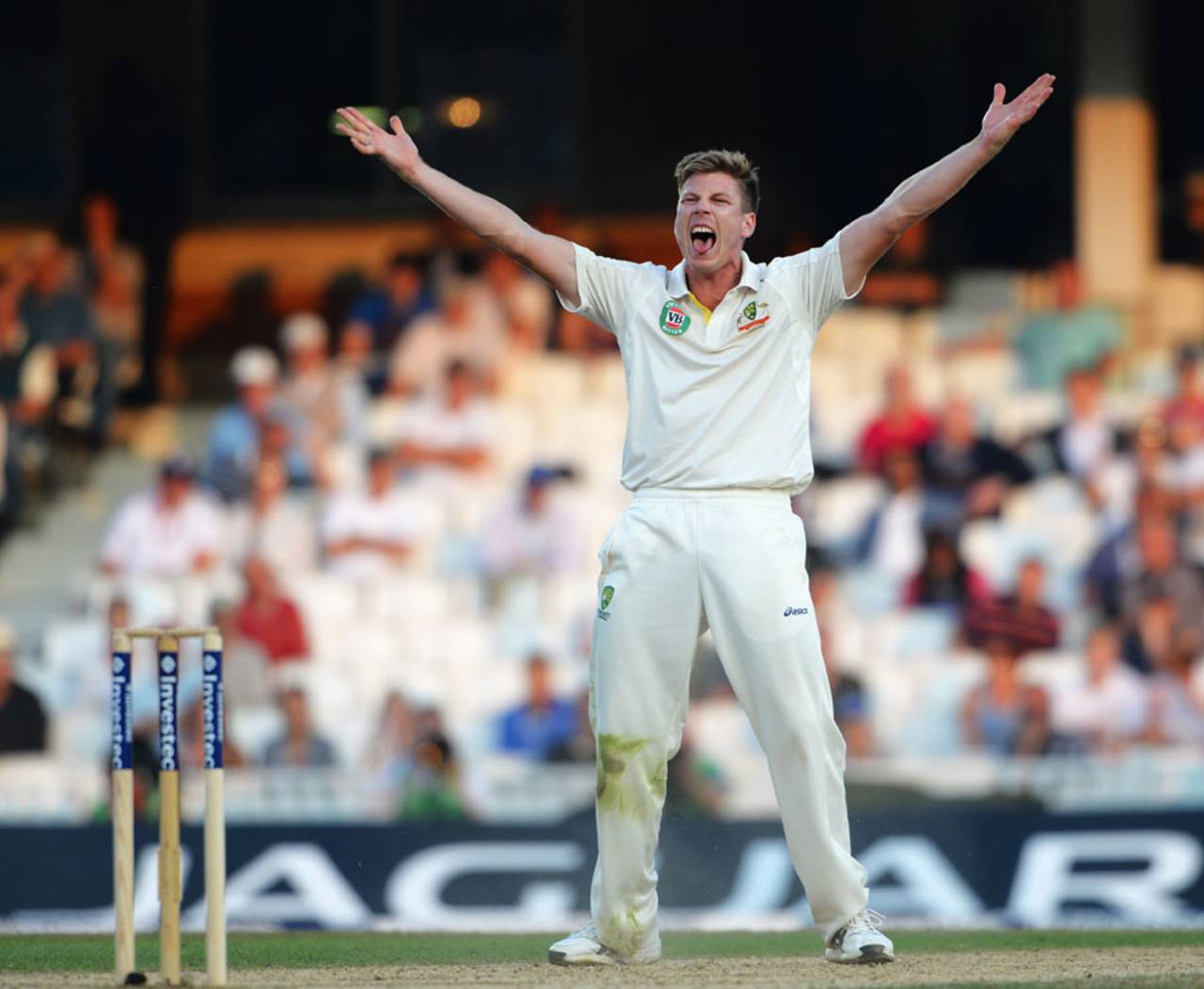Can Australia produce a world-class Test allrounder in the current cricket climate? Can any country? Watching
James Faulkner pick up his Man-of-the-Match award after the World Cup final in
Melbourne I continued to doubt it. Australia's selectors duly left him out of their
Test squads for the upcoming West Indies and Ashes tours.
Like
Glenn Maxwell - another prodigiously talented, in-demand limited-overs player who was left out of those touring parties - Faulkner simply doesn't play enough first-class cricket to properly stake his claim. When he's not representing his country in one-day internationals and T20s he's playing in the Big Bash League and the IPL. In generations past, when only one of those four options was available to him, he'd have been sought-after commodity, flitting between county cricket and the Sheffield Shield, thus developing and refining his Test weaponry.
When Faulkner made his
Test debut in the fifth match of the 2013 Ashes in England, it felt like the beginning of something. He made a pair of 20s and took six wickets, four of them in an impressive first-innings showing and three of them English top-order scalps. He has never been picked in the XI again. Compounding this absence from the Test set-up, in the two years since that game he has played only seven first-class matches, five for Tasmania and two for Australia A during the winter of 2014.
Faulkner is still just shy of his 25th birthday, but while time is on his side it's hard to see his limited-overs commitments reducing any time soon. In both of those formats he's arguably Australia's most valuable player, a partnership-breaking bowler of canny variations and a potent finisher with both ball and bat. His
first ODI century - scored against India late in 2013 - was then the fastest by an Australian and since he scored it he's developed a reputation for his ice-cool temperament in chases. Sadly this has also served to obscure his potential value in long-form cricket, where he has far fewer opportunities.
More than any other player in Australia (even Maxwell has received a greater number of Test opportunities), Faulkner's value as a limited-overs player has to some extent seen him pigeon-holed. Critics of his Test claims point to the fact that he still hasn't scored a first-class century, rather than bemoaning the fact that he has barely had a chance to do so.
On the rare recent occasions on which he has been available for first-class cricket, Faulkner has actually been a different beast batting at No. 6, where Tasmania have placed him in more recent times. In November last year he composed an
unbeaten 63 off 119 against Western Australia as wickets tumbled around him, an innings that secured his side a draw. A low-key captaincy appointment for Australia A last Australian winter, he was shifted up to five and responded with 94 off 148 in the
second game.
Faulkner has shown an ability to adapt according to the scenario too. At the
Adelaide Oval he once played a cautious 27 off 102 in the first innings before stroking a fluent 53 off 68 in the second. He does it under pressure as well. To go with his four wickets in Tasmania's 2012-13
Shield final triumph, Man of the Match Faulkner scored 46 off 109 in the first innings and 89 off 207 in the second. Not just a slogger then.
Still, the trends are easy to pinpoint. It's not since 2012-13 that Faulkner played a proper first-class season, turning out in
ten games (for 39 wickets at 20.33 and 444 runs at 34.15 - the performances that secured his Ashes spot) as he had the season before. In 2013-14 he managed only two first-class games and the 2014-15 season just gone, only three. Injury didn't help his Ashes chances but even fit, he would have been involved in Australia's World Cup preparations anyhow, not playing Shield games.
For Faulkner and Maxwell, none of this is going to change in a hurry. For the next six weeks they will ply their trade in the IPL. Both are then available to then jet across to the UK and take part in the NatWest t20 Blast, though this year only Maxwell will. By September, Faulkner will be in England playing five ODIs and a T20, by which time the Ashes will be done.
For now Australia's Test selectors prefer what Mitchell Marsh offers: No. 6 batting of steadily increasing quality and gun-barrel straight medium pace that allows the frontline bowlers a rest but is nevertheless far from impactful by international standards. Right now that's fine, but you wonder what sort of asset that bowling will really be once the likes of Ryan Harris and Mitchell Johnson are replaced by less talismanic quicks.
Faulkner undoubtedly boasts a greater array of tricks with the ball than Marsh, if not increased pace, so the question becomes whether he could match him with the bat. Aesthetically? Maybe not, but I wouldn't bet against a greater output if he was given an extended chance. The bigger hurdle would be keeping his body primed for the significantly increased workload.
Ultimately Maxwell will have a say in all of this too, as might Moises Henriques, so in a couple of Australian summer's time we might not have anything closer to an answer to what's a very modern twist on the age-old Australian allrounder dilemma.

